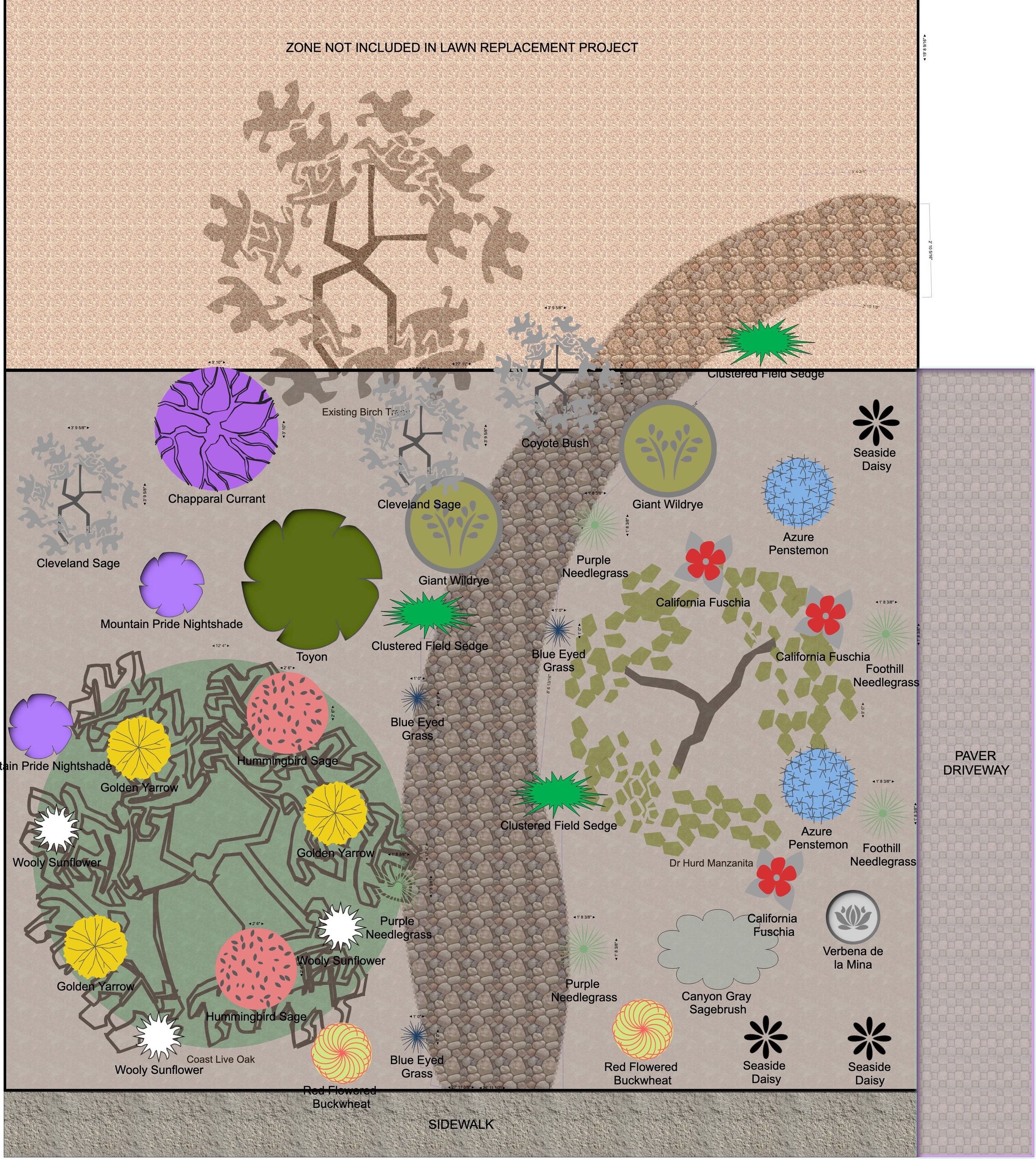
Lawn Replacement Resources
Lawn Replacement Rebate
If your home is located within the Santa Clara Valley Water District, you can get a rebate for your lawn replacement project, up to $3,000! In order to receive the rebate, you must submit your application before starting your project. For more information, check out their website! If you’re outside of this jurisdiction, check your local water district website to see if they provide rebates for lawn replacement. Many do!
-
There are lots of helpful resources on steps you can take to remove your grass.
After reading through a few resources, I decided the best option for me was to remove the topsoil for my project. I chose this because of a few reasons.
I had a bermuda grass yard. Bermuda grass is difficult to remove fully.
I had limited time. I had to complete my project within the timeline as provided by the rebate program.
I was already getting my driveway redone, so I asked the workers to scoop out a few inches of top soil using their bulldozer. They completed the work in one day, and though it was a few hundred dollars, it was well worth it for me.
-
I had a lot of trouble figuring out what I should do for irrigation after replacing my lawn.
Some lawn replacement rebates require specific types of irrigation, so please keep that in mind as you plan your project.
For me, I decided it was best for me to selectively water my plants by hand with a hose. I do have a large ring for drip irrigation around my trees leaving ample room away from the trunk.
Here are some resources on irrigating your native garden:
-
Many rebate programs do provide some financial coverage if you want to hire a professional to plan your garden.
I planned my garden myself, and I had a few priorities that I decided on when I planned it. I used Calscape to filter plants based on my region, and then went to each plant profile to get the details that details that I needed, like
Plant size
placed larger and taller plants towards the middle of the plot
lower growing plants around the edges
Sun requirements
Placed full sun plants around the edges of the plot
Placed part sun plants around trees and near the shadow of the house
Water needs
Placed low water plants furthest from the water sources
Placed high water plants closer to the shadow of the house
Appearances
Chose mostly plants that are evergreen so that the front yard will look fairly consistent throughout the year
I then scattered seeds for annual plants in the gaps between the larger plants. This will fill in the area until the larger plants grow in more.
